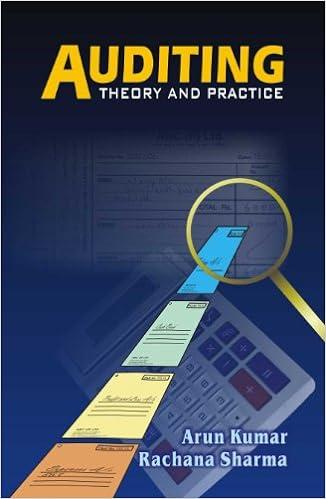Question
On January 1, 2020, James Company purchased 100 percent of the outstanding voting stock of Nolan, Inc., for $1,000,000 in cash and other consideration. At
On January 1, 2020, James Company purchased 100 percent of the outstanding voting stock of Nolan, Inc., for $1,000,000 in cash and other consideration. At the purchase date, Nolan had common stock of $500,000 and retained earnings of $185,000. James attributed the excess of acquisition-date fair value over Nolan's book value to a trade name with an estimated 25-year remaining useful life. James uses the equity method to account for its investment in Nolan.
During the next two years, Nolan reported the following:

Nolan sells inventory to James after a markup based on a gross profit rate. At the end of 2020 and 2021, 30 percent of the current year purchases remain in James's inventory.
Using the attached Excel template, compute the following:
- The Equity Method balance in James' Investment in Nolan, Inc., account as of December 31, 2021
- Worksheet adjustments for the December 31, 2021 adjustments of James and Nolan. Use the following Codes to designate the purpose of the journal entry:

Formulate your solution so that Nolan's gross profit rate on sales to James is treated as a variable.
This is the template provided by the Instructor to be completed:

Please show formulas in Excel. Thank you!
\begin{tabular}{lccc} \hline & Income & Dividends Declared & Inventory Transfers to James at Transfer Price \\ \hline 2020 & $78,000 & $25,000 & $190,000 \\ 2021 & 85,000 & 27,000 & 210,000 \\ \hline \end{tabular} Consolidation entries: ( G) Recognition of intra-entity beginning inventory gross profit in current period consolidated net income. Downstream sales are attributed to parent. (S) Elimination of subsidiary's stockbolders' equity accounts along with recognition of the nonoontrolling intere st as of J anuary 1. (A) Allocation of excess fair value over subsidiary's book value, unamortized bel ance as of January 1. (I) Elimination of intra-entity income remaining after * G elimination. (D) Elimination of intra-entity dividend. (E) Recognition of amortization expense for current year on ex cess fair value allocated to database. (P) Elimination of intra-entity receivable/payable balances. (TI) Elimination of intra-entity sales/purchases belances. (G) Deferral of intraentity ending inventory gross profit from current period consolidated net inoome and removal of intra-entity gross profit from ending invent \begin{tabular}{lccc} \hline & Income & Dividends Declared & Inventory Transfers to James at Transfer Price \\ \hline 2020 & $78,000 & $25,000 & $190,000 \\ 2021 & 85,000 & 27,000 & 210,000 \\ \hline \end{tabular} Consolidation entries: ( G) Recognition of intra-entity beginning inventory gross profit in current period consolidated net income. Downstream sales are attributed to parent. (S) Elimination of subsidiary's stockbolders' equity accounts along with recognition of the nonoontrolling intere st as of J anuary 1. (A) Allocation of excess fair value over subsidiary's book value, unamortized bel ance as of January 1. (I) Elimination of intra-entity income remaining after * G elimination. (D) Elimination of intra-entity dividend. (E) Recognition of amortization expense for current year on ex cess fair value allocated to database. (P) Elimination of intra-entity receivable/payable balances. (TI) Elimination of intra-entity sales/purchases belances. (G) Deferral of intraentity ending inventory gross profit from current period consolidated net inoome and removal of intra-entity gross profit from ending inventStep by Step Solution
There are 3 Steps involved in it
Step: 1

Get Instant Access to Expert-Tailored Solutions
See step-by-step solutions with expert insights and AI powered tools for academic success
Step: 2

Step: 3

Ace Your Homework with AI
Get the answers you need in no time with our AI-driven, step-by-step assistance
Get Started


